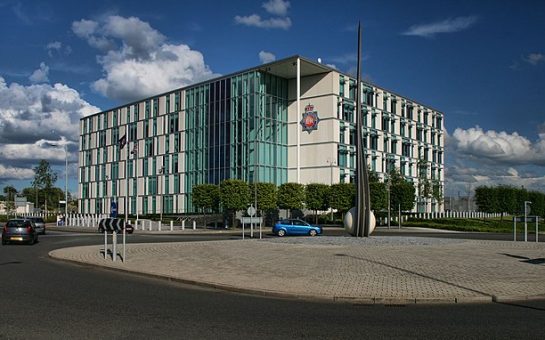A ban on parking your car on the pavements across Greater Manchester would result in more crashes, more fines AND higher insurance premiums, according to a specialist motoring solicitor.
A bill currently being passed through parliament could soon make it illegal for drivers to leave their cars on paths – with a decision possibly due next month.
The move was backed by charities, Guide Dogs and Living Streets, who say that cars parked on pavements provide obstacles to vulnerable people, but Neil Sargeant from specialist criminal lawyers Olliers Solicitors believes it may not be the ‘correct way’ to proceed.
“My main concern is that if pavement parking is completely illegalised, it would create more of a danger overall,” he told MM.
“I would certainly expect an increase in collisions with parked vehicles and this in turn will increase insurance claims, which will then have a knock on effect to the insurance industry as a whole.
“There may also be more charges brought of parking in a dangerous position which would increase the risk to all nearby road users.”
Inspector Phil Bromley, of GMP’s Traffic Network, welcomed the initiative in order to free up pavements, but the solicitor believes different circumstances should be considered in regard to the safety of drivers and pedestrians alike.
“Whilst I agree with Inspector Bromley that the safety of pedestrians is of paramount importance, the individual circumstances of each case should be considered with the safety of all in mind,” said Mr Sargeant.
“In some circumstances, it really is safer for everybody to partly park on a pavement as opposed to risk being hit by another passing car.
“There seems to be little gain – other than to make money – to adopt a blanket approach to illegalise all pavement parking when there are several instances where it could actually be the safest option for all concerned.”
Mr Sargeant explained that, if the ban came into fruition, there would be nowhere for people to park their cars, which is already a proving to be a problem in areas of the city.
“There is a huge disproportion in the number of parking areas compared to the number of vehicles and some roads simply do not have the width to accommodate cars that are not partly on the pavement – particularly residential areas,” he said.
“If all pavement parking was illegalised it would make it extremely difficult for thousands of motorists to park whether it be near work or their home.
“We must also remember that some vehicles parked on the pavement outside of someone’s home will be there because it is a disability vehicle and the road is not wide enough to accommodate parked cars.
“Forcing this motorist to park further away from home so that they are not on a pavement is potentially dangerous to them as individuals.”
He believes that it could be more effective to enforce tougher penalties for bad parking on pavements, as opposed to introducing a complete blanket ban.
“In my opinion it may be more prudent to look at individual cases on their own merits and have the offence of ‘causing an obstruction’ more vigorously enforced by way of fixed penalties,” he added.
“If an area has no formal parking restrictions, a vehicle should be able to legally to park anywhere as long as it does not cause an obstruction to either pedestrians or other vehicles.
“If it obstructs either category then appropriate penalties should be handed out as it would in fact be dangerous.”
You can find more about Olliers Solicitors here.
Image courtesy of Peter Miller, with thanks.



